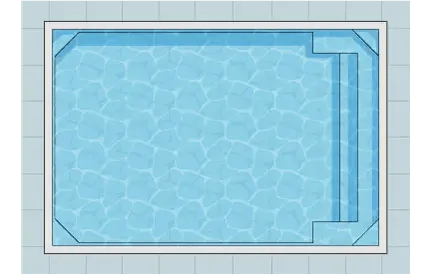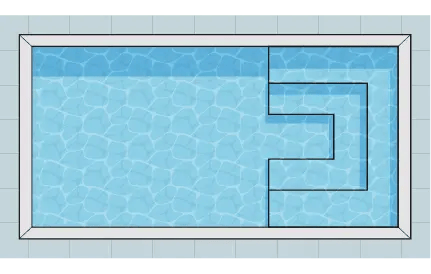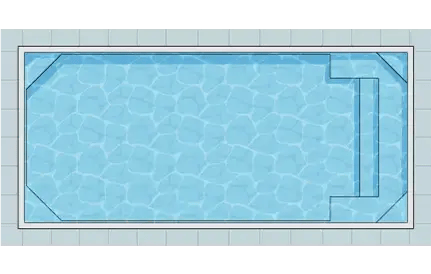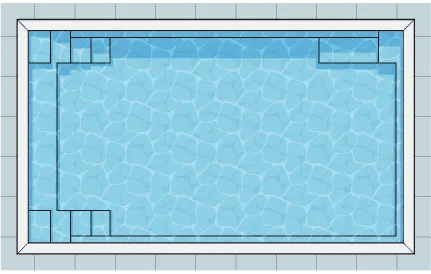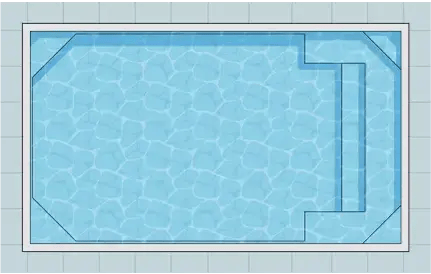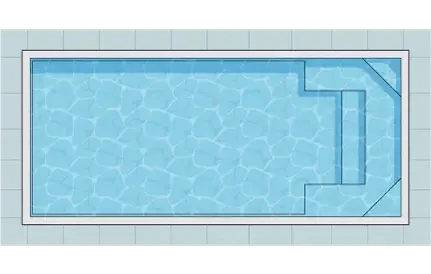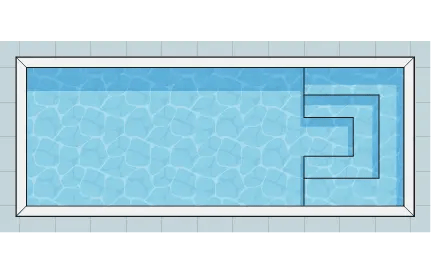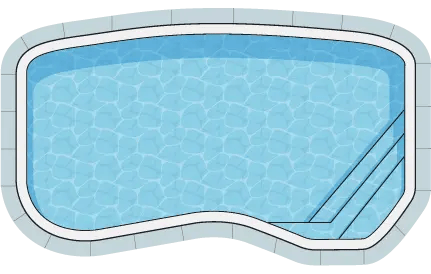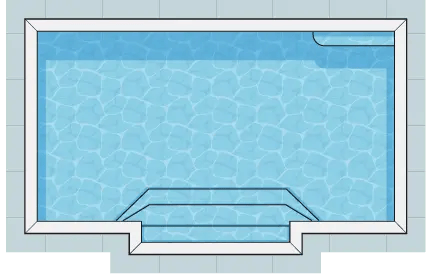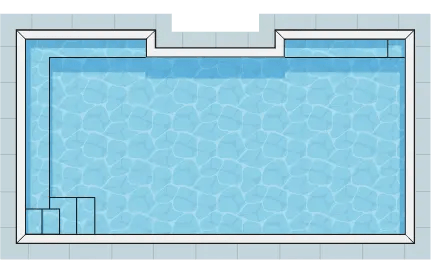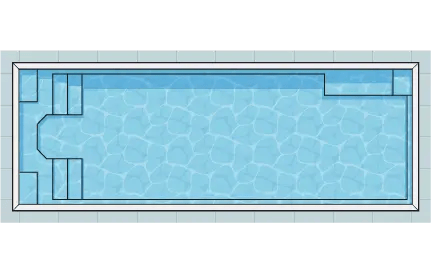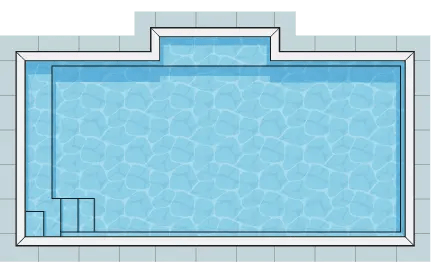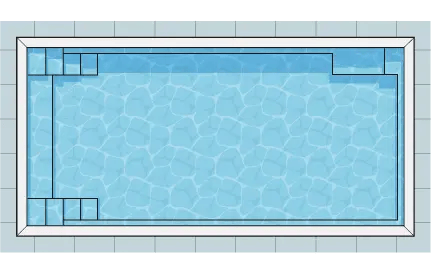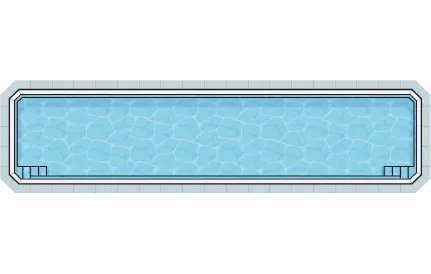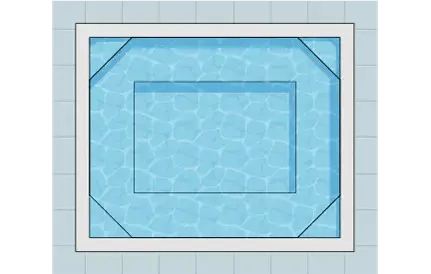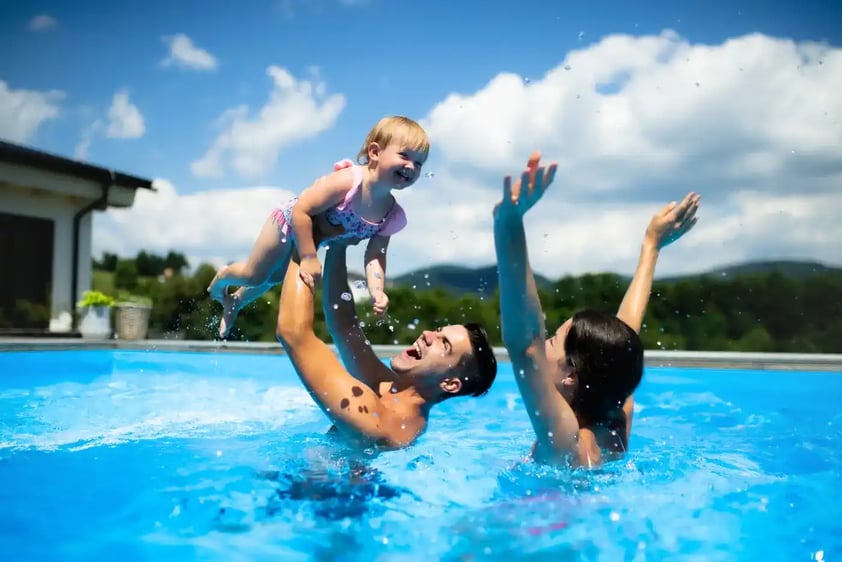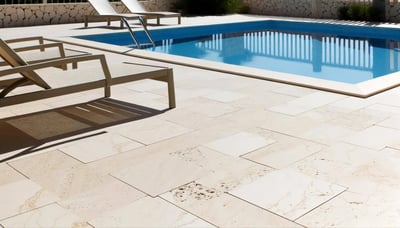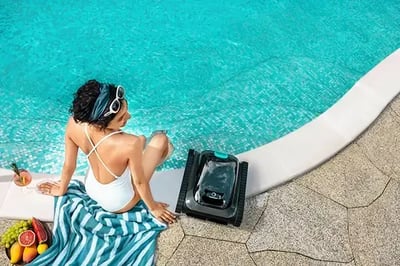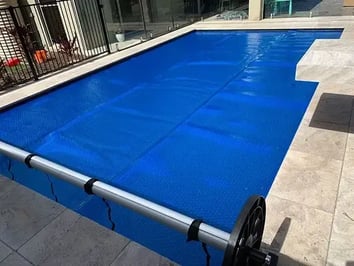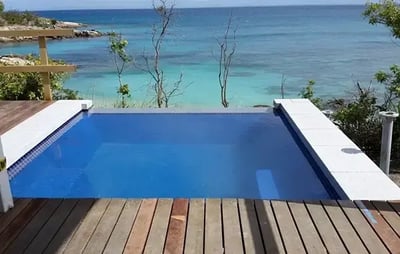Salt, mineral salt or freshwater, which is the best and why? We're asked this all the time so we're going to break down these systems and get to the bottom of which system will work best for your pool. The world of swimming pools can often be a confusing place. Whether it's choosing between a concrete or fibreglass pool, deciding which filtration to use or which colour will look best, so many decisions need to be made. You can chat with your local pool shop or spend some time on pool forums, but often you will get very mixed advice and sometimes leave feeling more confused than before!
If you want to dive into crystal clear waters, your swimming pool needs a system that sanitises the water. Many new products have been launched in the last couple of years, and quite often, the marketing of these products is pretty clever and a little misleading. In this article, we will break down the main sanitation options for your pool and give the pros and cons of each.
Chlorine Pools
Red stinging eyes, chlorine smell on your skin, and feeling the need to wash your hair after a swim; ring any bells? Chlorine pools were once the most popular way of sanitising a pool. Liquid pool Chlorine was added to the water, which killed bacteria, stopped algae, and made the pool water a safe, clean place to take a dip. However, although liquid Chlorine does a fantastic job of sanitising the pool, it comes at a price.
When swimming in a pool, you want to feel like you're swimming in fresh water without worrying about the water getting into your eyes and causing irritation. Skin irritation is a big issue with liquid pool Chlorine, and the red, stinging eyes can make children upset (and, to be fair, adults, too!). So although Chlorine is an effective method to keep your swimming pool safe for swimming, there are more effective ways to achieve a clean pool these days.
Benefits and Cons of Chlorine Pools
Benefits
Cheaper than other methods of sanitising your pool
Simple and easy maintenance
Cons
The water is harsh and often leads to red, stingy eyes
Strong smell of Chlorine on your skin and hair
Need to have a shower straight after swimming
Saltwater Pools
Saltwater pools still use Chlorine, but it's not liquid pool Chlorine. With a saltwater pool, a Saltwater Chlorinator uses salt added to your pool water to create Chlorine instead of adding pool Chlorine directly. The Chlorinator uses an electrolytic cell that converts the chloride from the salt water into pool Chlorine. Most pools will only need salt added once or twice a year.
The smell we associate with Chlorine comes from Chloramines, a by-product of Chlorine. A saltwater Chlorinator prevents this smell, as it monitors the chlorine output preventing fluctuations in the amount of Chlorine generated.
An important factor to consider when looking at the equipment supplied with your pool is the size of the Chlorinator. At Swimming Pool Kits Direct, we have selected the correct size chlorinator for each pool size we offer. Suppose you have a chlorinator that's too small for the size of your pool. In that case, the Chlorinator will have to work too hard to create the correct Chlorine level for the water in your pool.
Before buying a pool kit on cost alone, compare the equipment specifications of different companies. Swimming Pool Kits Direct has high-quality equipment that we stand behind and believe will exceed your expectations.
Benefits and Cons of Saltwater Pools
Benefits
Water is less harsh than traditional chlorine pools, so it's gentler on the skin
Level of salt is low, so it doesn't taste salty
Adding pool-grade salt is safer than handling chlorine granules or liquid pool Chlorine
The salt is continually recycled into the Chlorinator and out again, so you only need to add it twice a year
Pool-grade salt is cheaper to buy than Chlorine
The Chlorinator
Less hands-on than pool Chlorine as the Chlorinator is doing the work: no manual adding of Chlorine
Chlorine levels stay consistent, so there is less chance of algae or cloudy water
Cost effective, one $10kg is $10
Cons
- The initial cost associated with buying a Chlorinator
- Maintenance for your Chlorinator
- Regularly testing your pool water is required (you can take a sample to your local pool shop or use the test strips supplied in your SPKD package)
- Has the potential to corrode pool equipment over time
Top Tip: Look at the size of the Chlorinator you are being sold – is it big enough? It's much better to be oversized than undersized.
For more info on how a Chlorinator fits into your system, read our article on (insert a link to the article - how a pool system works)
Mineral Pools
A mineral pool is also known as a magnesium pool, due to the benefits of a magnesium pool, they have exploded in popularity, and it's easy to see why. Here at Swimming Pool Kits Direct, we include a Chlorinator in our kits that can be used for saltwater or mineral salts—a premium product in the market and one that sets our packages apart.
Essentially, the minerals are used the same way as the salt in a saltwater pool. However, due to the magnesium content, a mineral salt pool requires 40% less Chlorine than a saltwater pool. In the initial set-up of a new pool, you will be given the correct number of magnesium bags to add to your pool water. We use Phoenix Oceania Mineral Essence, comprising Murray River salt and Magnesium from the Dead Sea. They have also added a small percentage of citric acid to prevent any staining of your pool.
The feel of the water in a mineral pool is incredible. The water is silky, and the benefits of Magnesium to your skin have been well-researched. There's a reason Epsom salt baths are recommended to relax the muscles and aid in the relief of sore joints. We love how a mineral pool feels excellent and has health benefits, too.
Benefits and Cons of Mineral Pools
Benefits
Silky soft water
Little maintenance
No chlorine smell
Requires 40% less Chlorine
Phoenix Oceania uses Australian salt from the Murray River
Only have to add a couple of bags a year
Cons
Costly initial set up – one 10kg bag is $40
It still has Chlorine in the pool
Freshwater Pool
A new player on the market, the freshwater pool has been seen as a game-changer. Many want to have as few chemicals as possible in their pools, which makes sense. However, how much of this is marketing? Are there really no chemicals used in these systems?
Surprisingly, Freshwater pools have been around for a while, with the first concept of an ioniser pool. This pool system uses ionisation to sanitise the water. NASA first used ionisation for water treatment in the NASA Space Shuttle in the 1960s.
How do they work?
The term "freshwater' can be a little misleading as all pools need to be balanced correctly for the water to be safe to swim in. No pool is truly freshwater, as you need some form of a sanitation system in place.
Naked System
A popular system to create a freshwater pool is ionisation. It uses copper and silver to sanitise the pool. Copper and Silver have been used for thousands of years to keep water clean. Copper has traditionally been used to prevent algae growth, and silver has been shown to kill bacteria.
Copper and Silver are not enough on their own to sanitise the pool, so they are combined with an Oxidiser, which makes a small amount of Chlorine to remove organic waste like sunscreen, oils from the skin and dust from the surrounding area. The water passes over the metal rods and then through the Oxidiser, which is similar to a chlorinator and produces a small amount of Chlorine.
These pools still use a small amount of minerals or salt to produce Chlorine, which is where the controversy comes in. However, the big difference is the amount of Chlorine produced. In a Naked System, the amount of Chlorine produced is the same as in your drinking water from the kitchen tap!
Less chemicals
In Saltwater and Mineral pools, a stabiliser must be added to the water to prevent the Chlorine from being degraded from direct sunlight. This extends the life of the Chlorine to make sure the pool has the correct amount of Chlorine to sanitise the water. However, this isn't needed with the Naked System, as the silver and copper ions stay in the water and don't need such high amounts of Chlorine.
In a Naked pool, 50% fewer chemicals are required in the pool and 80% less salt or minerals. The pool equipment will also thank you - less salt means less corrosion–a considerable cost saving!
Benefits and Cons of Freshwater Pools
Benefits
The water is gentle on the skin, so it's great for psoriasis or eczema sufferers
Lower running costs due to fewer chemicals
Backwash direct to your garden to avoid water wastage
Less corrosion, so it's better for the pool surrounds and equipment
The amount of Chlorine is about the same as tap water, so no need to wash it off after swimming
No red eyes or irritated skin
Cons
The system is more expensive to buy than a Saltwater or Mineral System
Conclusion
Choosing the right pool sanitisation system can be tricky, but it can make all the difference in your swimming experience. While traditional chlorine systems have been used for years, saltwater, mineral, and freshwater systems offer alternatives with unique benefits.
Saltwater pools are low-maintenance and provide the convenience of automatic chlorination, while mineral pools offer a gentler swimming experience and have the added benefit for your skin from the magnesium salts. Freshwater pools like the Naked System are a hybrid system that uses copper and silver ions to sanitise the water with very low chlorine levels.
Ultimately, the best system for your pool will depend on your budget and preferences, but with this information, you can make an informed decision and be one step closer to creating your perfect pool.
Talk to us to discuss your new pool. We're here to provide guidance and support, ensuring you have all the information you need to make a well-informed decision.







